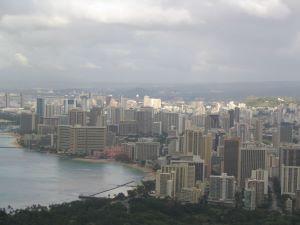A New York bill takes aim at unlicensed pot shops, the Honolulu city council approves an ordinance requiring that naloxone be on hand at bars and nightclubs, and more.

California Cannabis Café Bill Revived. The legislature last year approved a bill to allow Amsterdam-style cafes where people could consume marijuana, Assembly Bill 374, only to see it vetoed by Gov. Gavin Newsom (D). Now, bill sponsor Assemblymember Matt Haney (D-San Francisco) says he will bring it back again this year.
Californians can already smoke or otherwise consume marijuana on-site in licensed consumption lounges but marijuana shops cannot sell non-marijuana items, such as food and coffee. This bill would change that.
Currently, it's not illegal in California for customers to smoke or consume cannabis on-site in consumption lounges, but it is illegal for dispensaries to sell non-cannabis products, including food and coffee.
Haney's office stressed concerns about the state's huge black market, which the legal marijuana industry must contend with. Recent estimates put the size of the state's legal marijuana sales at $4 billion in 2020, while black market sales were estimated to be double that at $8 billion.
"It's really about fairness and supporting businesses that follow the rules. If we keep allowing unnecessary regulations to strangle California's legal cannabis businesses, we're just encouraging illegal drug sales and all of the problems that come with that," said Haney.
"To be clear, we're not saying that coffee shops should be allowed to sell cannabis," he added. "We're saying that cannabis shops should be allowed to sell coffee. It shouldn't be illegal for an existing cannabis business that already allows onsite smoking to move away from only selling marijuana and instead have the opportunity to grow and create jobs by offering coffee or live jazz."
New York Bill Takes Aim at Unlicensed Pot Shops. Assemblymember Jenifer Rajkumar (D) has filed the Stop Marijuana Over-proliferation and Keep Empty Operators of Unlicensed Transactions (SMOKEOUT) Act, which would give cities and towns new enforcement powers to shut down unlicensed pot shops, which have spread like mushrooms since the state legalized marijuana but lagged on getting legal shops open.
The bill would make selling unregulated marijuana products a Class A misdemeanor but does not specify any fines or jail time. It would also allow municipalities to not only shut down suspected illicit pot shops but also seize their merchandise and even the property itself. The power to close pot shops is currently held only by the state's Cannabis Control Board.
"The [bill] grants all municipalities across our Great State the authority to order the closure of unlicensed cannabis retailers and seize all merchandise, swiftly ending the blight of illegal smoke shops once and for all," a description for the legislation reads.
The bill's summary estimates the number of unlicensed pot shops in New York City alone at 1,500 and claims the stores are undermining the legal marketplace. It also says the illicit shops hold large quantities of illicit products and cash, making them targets for robberies, contending that there were more than 600 reported robberies of pot shops in 2022 and five fatal shootings at the shops last year.
Harm Reduction
New Hampshire House Approves Expanded Drug Checking Bill. On its first day back at work in the second year of a two-year session, the House on Wednesday approved House Bill 470, which would allow comprehensive drug checking to occur in the state. Last year, the legislature approved legalizing fentanyl and xylazine test strips.
The bill had been detained in the House Criminal Justice and Public Safety Committee last year, mainly because of concerns that drug traffickers would tke advantage of it, but a subcommittee worked through the summer and fall to craft amendments that would allow it to pass. It did that on a 12-8 vote. And on Wednesday, the full House followed suit, approving it on a vote of 212-161.
Sponsored by Rep. David Meuse (D-Portsmouth), the bill seeks to remove "drug-checking equipment" entirely from the state's definition of drug paraphernalia. It would also allow people to possess "nominal amounts" of drugs for the purpose of drug-checking -- without the fear of criminal prosecution.
"One of the reasons we need bills like this is we are not in a static situation when it comes to our epidemic of drug overdoses," Meuse said. "If we want to make an impact and we want to save lives, these are the sort of decisions we actually have to be prepared to make."<
The bill now heads to the Senate.
Honolulu Becomes First American City to Require Naloxone in Food and Drink Venues. The city council voted Monday to make Honolulu the first American city to require that bars, nightclubs, and restaurants keep the opioid overdose reversal drug naloxone on hand.
"Naloxone is a necessary tool these days in light of the national opioid epidemic," said Councilman Tyler Dos Santos-Tam. It should be available and accessible in as many places as possible, in the same way we have fire extinguishers and defibrillators in case of emergencies. "This new law will not only save lives, it will hopefully set an example for other cities throughout the United States," he added.
The drug is deployed using a nasal spray that can revive a person going through an opioid overdose. Hawaii has the sixth-lowest opioid death rate per capita of any state. This measure should help stay on the low end.
This work by StoptheDrugWar.org is licensed under Creative Commons Attribution-ShareAlike 4.0 International
Add new comment